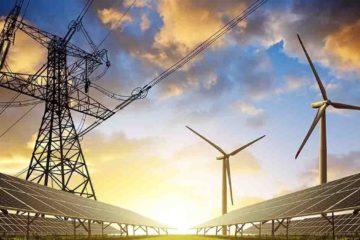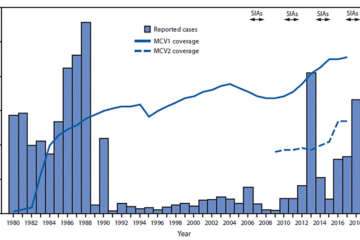Impact of COVID on Pakistan’s economy – The Nation

PAK 5 NEWS
Feedzy
It was only recently that Pakistan’s economy had begun to stabilise when the health crisis erupted. Experts worry that the economic consequences of the epidemic would seriously impede the country’s recovery. Non-farm workers in cities and rural areas were worse by the downturn in income and employment than agricultural workers.
The impact will most likely be felt for some time to come. Economic growth in developed and emerging economies and developing countries is anticipated to remain below levels seen before the pandemic, even if the global economy improves this year. Acute and long-term costs differ substantially between countries, with EMDE bearing the brunt of both. COVID continues to hurt the economy of Pakistan.
The financial repercussion
Until the second and third pandemic waves, Pakistan postponed large-scale lockdowns until the mid-2021 respite. Restoration to the pre-lockdown levels was there as a result of this? After the first shock of the storm passed, the area’s people were able to bounce back quickly. However, the process of healing has been sluggish.
Australia cancels Djokovic’s visa over COVID-19 entry requirements
Lockdowns left almost 3 million people without jobs when the first wave finished, and by November 2020, the average income was still 5.5% lower than before the lockdowns began.
There are at least two reasons why this may be an issue. For starters, the effects of the lockdowns in the second and third waves are not taken into consideration in the data currently accessible. Lockdowns are likely to have scuppered or reversed whatever progress was made during the time of respite. It’s also possible that structural unemployment has worsened due to the slow post-first-wave rebound.
Difficulties faced by Pakistan in international market
Trade has been extremely complicated and expensive throughout the world in recent months. Non-tariff trade barriers that exist only for a short period have the same effect as these additional expenses. Pakistan is suffering and will continue to face a temporary decrease in its export market share due to trade challenges because of its substantial exports.
How trending toys are teaching immorality to our children?
The supply of vital products may be hindered because of COVID-19. Additionally, the epidemic has had a significant impact on land, air, and marine traffic. Fragile industries will continue to endure a dip in sales, and some may face liquidity issues sooner rather than later as consumer sentiment declines.
Another essential lesson is that epidemics like COVID-19 demand the establishment of essential social support programmes that cover a far larger demographic, encompassing the lower- and middle classes alike. Income shocks resulting from the epidemic affect households at all asset levels. Due to a lack of recovery, an urgent social assistance component should protect jobs throughout lockdowns rather than distributing handouts to companies and unemployed individuals.
Social assistance programmes would entail documenting job and vendor contracts in writing. Due to these new changes, Pakistan will need a new social contract between the state, companies, and working and middle-class citizens.
Transparency, accountability essential for sustainable development: FM Qureshi
In what direction should we turn our attention at this point?
Low-income countries may be at greater risk of food insecurity due to increased food prices and increased overall cost of goods. Government should avoid using subsidies or price controls to ease the agony of growing food costs since they might lead to massive debts and an increase in global agricultural prices, both undesirable outcomes of higher food prices.
An uptick in global trade following last year’s downturn allows emerging economies and developing countries to improve economic progress. It is possible that reducing trade costs in emerging markets and developing countries might lead to increased commerce, investment, and growth.
As a result, the policy decisions made here will be critical. There must be a speedier and more fair delivery of vaccines if this pandemic is eliminated. Many low-income countries will reap the benefits of debt relief. To assist the economic recovery, policymakers will need to deploy fiscal and monetary instruments while keeping an eye on financial stability. Policies aimed at reviving human capital and widening digital connectivity are critical if growth is to be robust and equitable.
Pakistan vaccinates 160 million people against COVID-19
To end the pandemic, a worldwide effort is needed to provide comprehensive immunisations and careful financial management to avoid catastrophes. This world’s economies, particularly those in developing nations like Pakistan, have yet to recover fully from the COVID outbreak’s shock.
Feedzy












